Customs Brokerage 101
Freightclear makes imports simple by providing tools & services for importers
Customs Brokerage Basic Guide
Boost your Import IQ before your shipment leaves port
About US Customs (CPB)
The U.S. Customs and Border Protection (CBP) is a federal law enforcement agency within the Department of Homeland Security. The CBP is responsible for protecting the security and integrity of the United States’ borders by preventing illicit entry, detecting and intercepting contraband, and enforcing customs and immigration laws. The CBP is responsible for enforcing laws and regulations pertaining to the import and export of goods. This includes regulating goods across U.S. borders, collecting duties and taxes on imported goods, and enforcing trade agreements and other international obligations. The CBP also protects U.S. agriculture and natural resources by preventing the introduction of harmful pests and diseases through imported goods. The CBP has more than 60,000 employees and operates at land, air, and sea ports of entry throughout the United States.
The Customs Clearance Process
Customs clearance is the process of declaring and obtaining permission to import goods into the United States. This process is carried out by customs officials at ports of entry and involves verifying the identity of the importer, the country of origin of the goods, the value of the goods, and any applicable duties or taxes. The customs clearance process is designed to ensure that all imported goods comply with U.S. laws and regulations, and to collect any applicable duties or taxes. In order to complete customs clearance, the importer may need to provide various documents, such as a commercial invoice, a bill of lading, and a packing list. The customs clearance process can be complex, so many importers choose to work with a customs broker to help them navigate the process.
Customs Brokers
A customs broker ( Freightclear ) is a professional who helps individuals and businesses navigate the customs clearance process when importing or exporting goods. They are responsible for preparing and submitting customs documentation, calculating and paying duties and taxes, and ensuring that shipments comply with the regulations of the country of import or export. Customs brokers can also provide advice on how to minimize the cost of customs duties and fees, and help with many aspects of the international trade process. They can also provide assistance with tariff classification and other compliance issues, as well as track shipments and negotiate freight charges.
Essential Customs Clearance Documents
There are several different forms that may be required for individuals or businesses importing goods to the United States. Some of the most common forms include the following:
- Customs Declaration Form (CBP Form 6059B): This form is used to declare the contents of a shipment to US Customs and Border Protection (CBP). It must be completed for each individual shipment and include detailed information about the goods being imported or exported, such as the quantity, value, and country of origin.
- Certificate of Origin (CBP Form 7501): This form is used to certify the country where the goods being imported or exported were produced or manufactured. It is often required for goods that are eligible for preferential treatment under a free trade agreement or other trade program.
- Entry Summary (CBP Form 7501): This form is used to provide a summary of the information on the Customs Declaration Form and other required documents for a shipment. It must be submitted to CBP before the goods can be released from customs.
- Power of Attorney (CBP Form 28): This form is used to authorize a customs broker or other third party to act on behalf of the importer or exporter. It allows the designated individual to prepare and submit customs documentation, pay duties and taxes, and make other customs-related decisions on behalf of the company or individual.
Customs Clearance Terms
Importers encounter these terms when shipments are headed to port or have arrived at port. Freightclear offers a streamlined process for addressing these items while clearing your imports.
Customs Duties/Tariffs
Terminal Handling Fee
Terminal handling fees are typically charged on shipments that are imported into the USA. The fee is usually paid by the shipper or the consignee, and is in addition to other charges such as customs duties, taxes, and transportation costs. The amount of the terminal handling fee will vary depending on the terminal operator and the services provided. The terminal handling fee will be included on your Arrival Notice.
HTS Code
ISF Filing
Clearing Freight Thru all USA Ocean Ports & Airports

Get Quotes Now..agents on call
Get a quote on customs clearance to all international ocean ports and airports. From pallet loads to full containers to full charters, we do it all.

